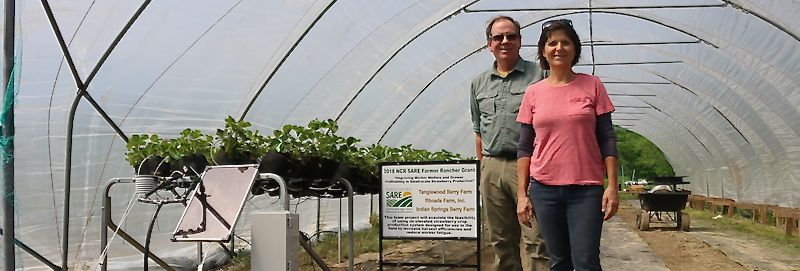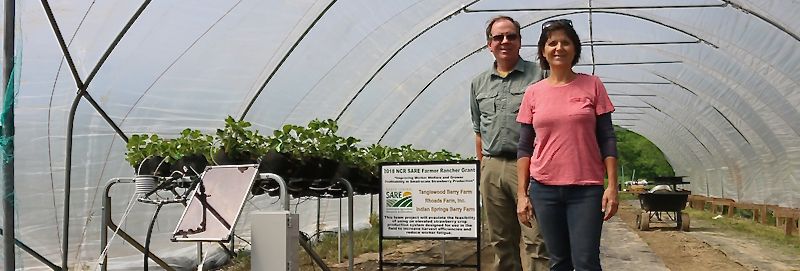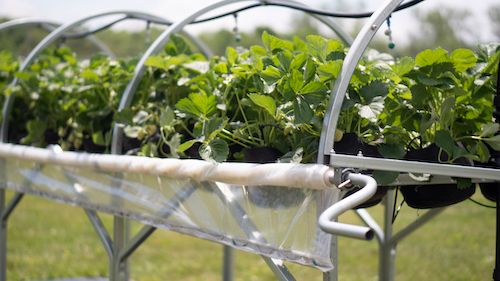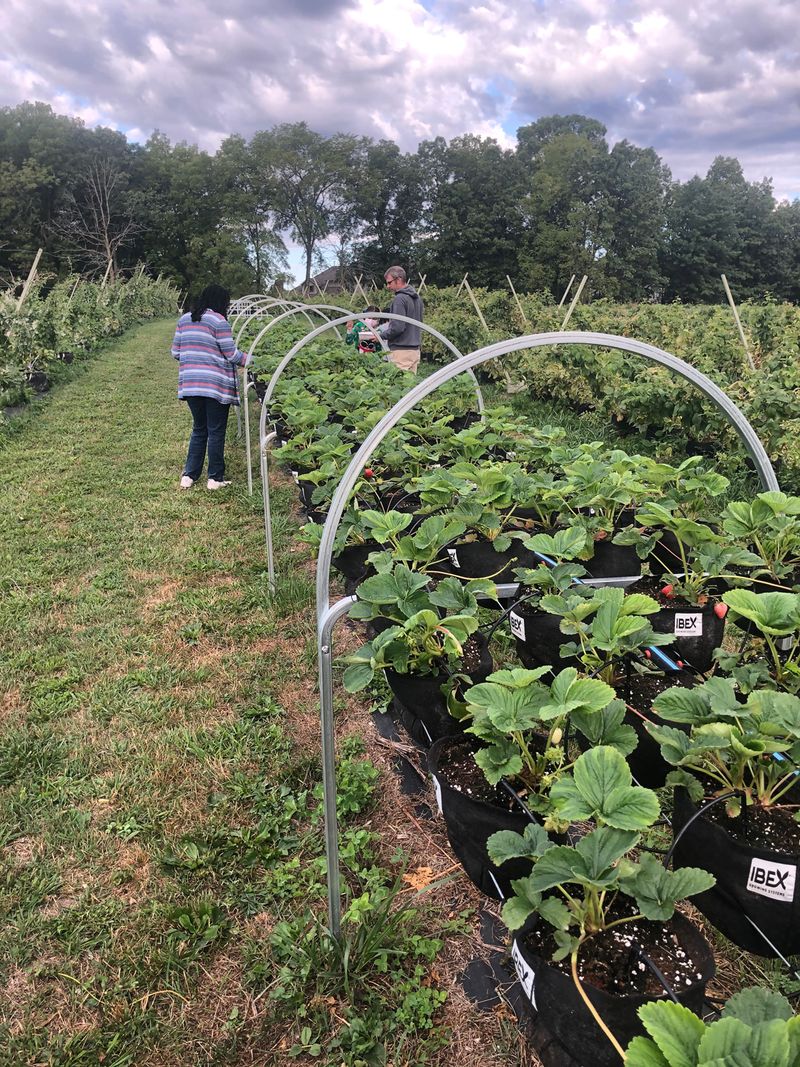Improving Strawberry Ergonomics


Novel system makes berries easier to pick
Sore shoulders, aching backs, and stiff knees are all too familiar for folks who work on farms. Bending in a stooped position is unpleasant for workers, including Richard Barnes, who raises you-pick and ready-picked berries at Tanglewood Farm in Fort Wayne, Indiana.
For years, Barnes has been tinkering with his version of an elevated strawberry growing system, one that would reduce physical stress, but also reduce plant disease and improve fruit quality.

Raising up the crop
With support from a $22,474 SARE Farmer Rancher grant, Barnes finalized his prototype for an elevated strawberry cropping system. He was able to set up his prototype system at Tanglewood Farm, as well two nearby farms, and experiment with various setups. The three farms tweaked the system and came up with an elevated bench design that met their needs.
Details include:
- Bench frame: They used galvanized steel to keep the frame lightweight, moveable, and weatherproof. A 12-foot section can hold 48 plants.
- Growing cycle: They plant bare-root in mid-June, have a 12-week first harvest from mid-August until mid-November, store the covered plants beneath the bench through the winter, bring them back up on the bench in April, and have a second 4-week harvest from mid-May until mid-June. Then, in June, they start the process again for the next year.
- Growing medium: Their ideal recipe was 45% coconut coir, 40% white peat, and 15% vermiculite or pearlite.
- Growing bags: A 1-gallon felt-like fabric pot was best for keeping the growing medium and plant cooler.
- Strawberry varieties: Focusing on flavor, yield, and heat and disease resistance, they concluded that Albion, Seascape, and Evie2 worked best.
- Nutrients: With bare-root plants, they had the best results when using slow-release fertilizer prills and injected N-P-K plus micronutrients every week from the first blossom through harvest.
- Pest management: The system increased air circulation which reduced fungal disease. Pests such as squirrels, chipmunks, and birds found it difficult to access the fruit.
- Irrigation: Wireless sensors monitored soil moisture and temperature and signaled the automated drip irrigation system, which can be solar-powered or not. For adequate and even flow and pressure, a minimum of 7 psi. was needed.

By cropping a spring and late summer/fall crop, a less than 2-year return on investment was possible for a you-pick, a ready-pick, or combination of the two.
Improving ergonomics and yields
Barnes said labor is where the system really paid off, with labor time reduced by at least half. The system also increased accessibility and ease of use for you-pick customers.

“Raised beds are so popular, but it’s still stooped labor,” said Barnes. “With our system, you can wheel up in a chair, or pick without bending over. People pick more berries per hour because the berries are easier to pick. A one-time study with our professional pickers picking was 10 lbs. from the elevated bench and 4.2 lbs. on the matted rows.”
Barnes also noted improved fruit quality. “We used to lose half our berries to disease, pests, and heavy rains,” said Barnes. “We had to spray more fungicide on the berries. With the bench berries, the quality of the fruit is much better. Your pack-out can be so much higher.”
In 2019, an agribusiness company, Biodyne USA, approached the team to jointly commercialize and market their elevated strawberry bench system. This new joint venture is IBEX Growing Systems. Together, they’ve set up commercial systems on other farms, including a 27-bench system in Iowa last spring.
“We’ve seen several instances where a three- or four-thousand acre row crop farm can’t support two families,” said Barnes. “If a farmer can bring a system like this in and diversify, it can allow a son or daughter to come back to the farm. That’s great for a rural community.”
Visit the IBEX Growing Systems website HERE
Tags:Sustainable Acres

Acreage Life is part of the Catalyst Communications Network publication family.
















